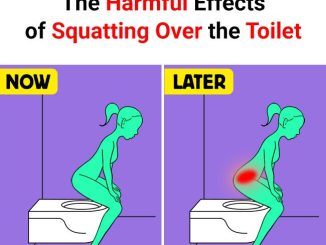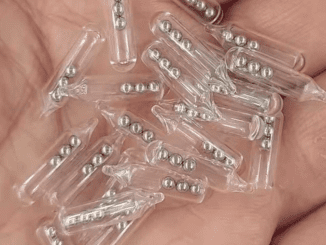In the ever-evolving world of social media, where trends come and go in the blink of an eye, a recent series of TikTok videos has sparked intense debate. A woman, who has garnered attention under the moniker “The Clean Girl,” has been posting videos of herself cleaning random graves. While her intentions seem to be rooted in respect and a desire to honor the deceased, her actions have not been universally well-received. The controversy centers on whether her videos are a sincere tribute or an inappropriate intrusion on the sanctity of the resting places of others.
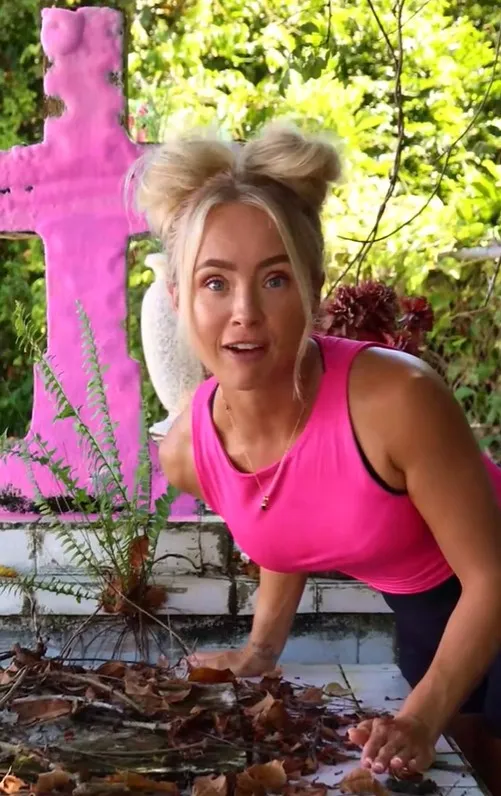
“The Clean Girl” has become known for her viral TikTok clips, where she enthusiastically cleans abandoned or old graves. In these videos, she meticulously scrubs away dirt and debris, often commenting on the condition of the graves and expressing her fascination with the history and stories that these final resting places might hold. She poses questions about the individuals buried beneath the headstones, sparking curiosity and engaging her audience in a conversation about the past.
For instance, in one video, she remarked, “Let’s clean a random grave. Who do you think is buried here? Let’s clean it and find out.” She goes on to ponder the age of the grave, noting the presence of plants growing around it, and even speculates on the life of the person buried there. Her videos have attracted millions of views, and she has built a following of people who appreciate her dedication to maintaining these often-neglected graves.
Supporters of “The Clean Girl” argue that her actions are commendable. They see her efforts as a public service, ensuring that even those who have been forgotten are not left to rest in a state of disrepair. Some viewers, particularly those who have loved ones buried in similar conditions, have expressed gratitude. They feel that her work brings a sense of dignity to graves that might otherwise be neglected.
One viewer commented, “A clean grave would be uplifting for anyone coming to pay their respects.” Another user, who identified as a relative of someone whose grave she cleaned, expressed heartfelt thanks, stating that her care brought them a sense of comfort knowing that someone was looking after their family member’s resting place.
Despite the praise, “The Clean Girl” has also faced significant backlash. Critics argue that her actions, however well-intentioned, cross a line. The primary concern is that she is cleaning graves without the permission of the deceased’s family. To many, this act is seen as an invasion of privacy and a disrespectful handling of someone else’s loved one’s final resting place.
A recurring critique is her use of cleaning tools, such as vacuums, which some viewers found particularly disrespectful. Additionally, concerns were raised about her replacing flowers or other items left by family members, as these are often deeply personal symbols of affection and remembrance. Many commenters have voiced that these items should not be disturbed without permission, as they hold significant sentimental value.
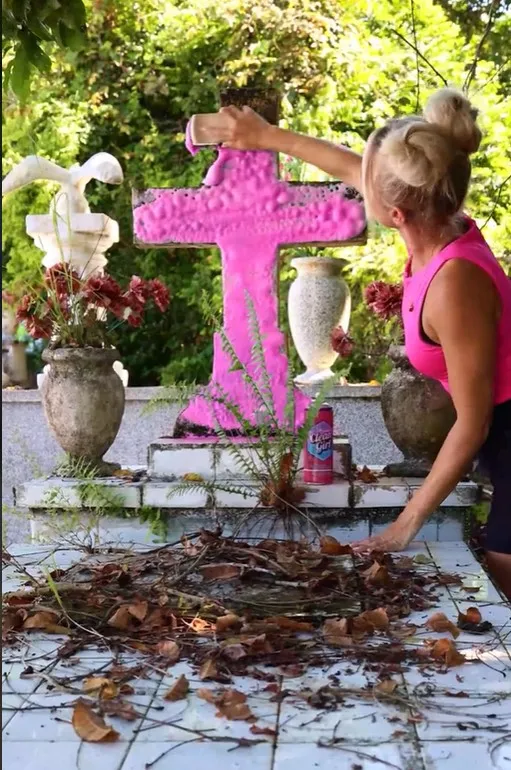
One user expressed, “This would be great if someone was doing it out of the kindness of their heart. It’s sad someone is using this opportunity to make some money.” This comment reflects a broader concern about the monetization of such acts, with some feeling that her actions are more about gaining views and followers than genuinely honoring the dead.
As with many controversies on social media, the reaction to “The Clean Girl” is deeply divided. While some users defend her, seeing her actions as a form of respect and care, others are offended by what they perceive as an intrusion into a private matter. One supporter wrote, “It’s amazing what she does. She’s showing respect to the dead by making them shine again,” while another user countered with, “Imagine being offended that someone is taking care of old grave markers and bringing them to life!”
These mixed reactions highlight the complex nature of her actions. For some, the idea of a clean and well-maintained grave is a sign of respect, while for others, the act of cleaning someone else’s grave without permission feels like an overstep.
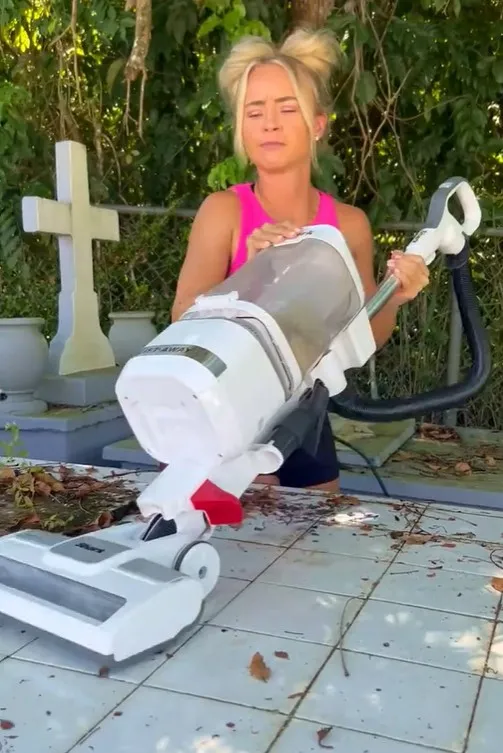
The controversy surrounding “The Clean Girl” raises important questions about the ethics of content creation on platforms like TikTok. While her intention might be to do good, the line between respect and exploitation can become blurred, especially when content is monetized or used to build a personal brand.
The debate also touches on broader issues about the commodification of kindness on social media. Is it possible to perform genuinely kind acts without them being perceived as self-serving when they are shared online? And where should creators draw the line when it comes to engaging with sensitive topics like death and memorials?
The case of “The Clean Girl” on TikTok serves as a reminder that even actions rooted in good intentions can be controversial. While some viewers appreciate her efforts to honor the dead, others find her approach disrespectful and invasive. This division underscores the complexity of how we navigate respect, privacy, and content creation in the digital age. As social media continues to evolve, so too will the conversations around the ethics of the content we consume and create.
Ultimately, whether “The Clean Girl” is seen as a kind-hearted individual or someone overstepping boundaries depends on one’s perspective. What is clear, however, is that her videos have sparked an important conversation about respect, permission, and the role of social media in our interactions with the past.
